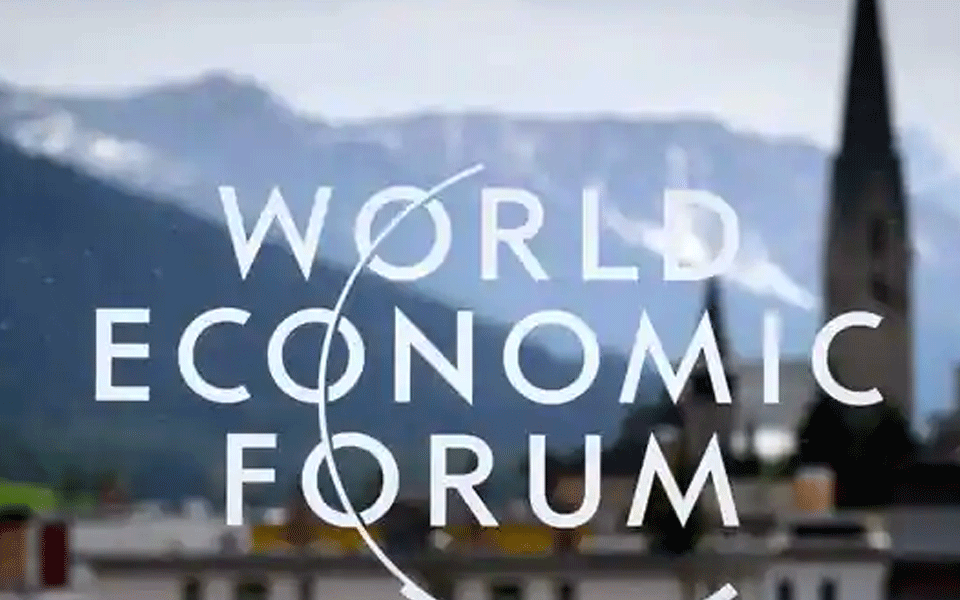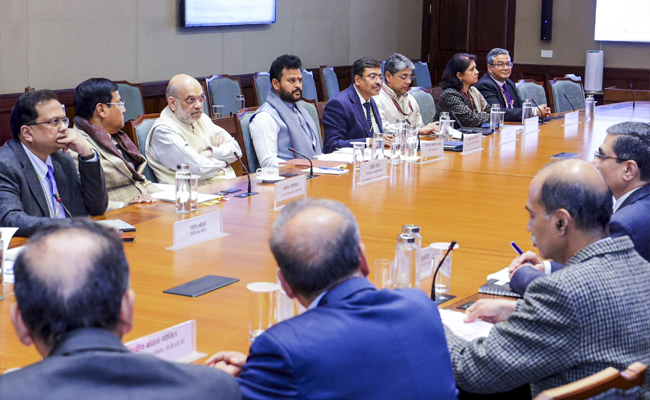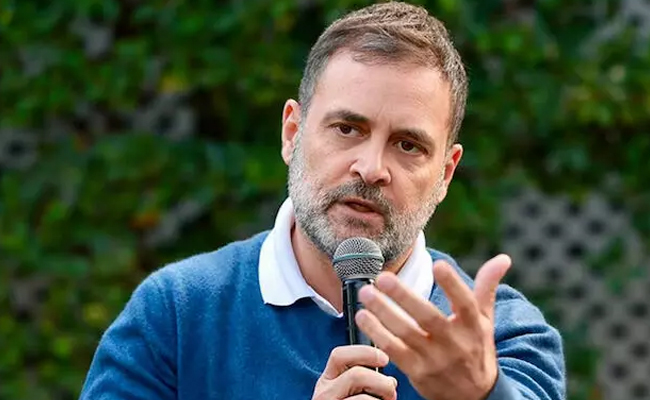Davos(PTI): As the rich and powerful from across the globe gather here for the World Economic Forum Annual Meeting 2022, Oxfam International on Monday said the COVID-19 pandemic has seen one new billionaire emerging every 30 hours, while nearly one million people could be pushed into extreme poverty every 33 hours this year.
Releasing a report titled 'Profiting from Pain' here in Davos, the rights group further said as the cost of essential goods rises faster than it has in decades, billionaires in the food and energy sectors are increasing their fortunes by USD one billion every two days.
The WEF, which describes itself as an international organisation for public-private partnership, is hosting its annual meeting in Davos after a gap of more than two years.
"Billionaires are arriving in Davos to celebrate an incredible surge in their fortunes. The pandemic and now the steep increases in food and energy prices have, simply put, been a bonanza for them. Meanwhile, decades of progress on extreme poverty are now in reverse and millions of people are facing impossible rises in the cost of simply staying alive," said Gabriela Bucher, Executive Director of Oxfam International.
The report showed that 573 people became new billionaires during the pandemic, at the rate of one every 30 hours.
"We expect this year that 263 million more people will crash into extreme poverty, at a rate of a million people every 33 hours," Oxfam International said.
Billionaires' wealth has risen more in the first 24 months of COVID-19 than in 23 years combined. The total wealth of the world's billionaires is now equivalent to 13.9 per cent of global GDP, marking a three-fold increase from 4.4 per cent in 2000, it added.
Bucher further said billionaires' fortunes have not increased because they are now smarter or working harder.
"Workers are working harder, for less pay and in worse conditions. The super-rich have rigged the system with impunity for decades and they are now reaping the benefits. They have seized a shocking amount of the world's wealth as a result of privatization and monopolies, gutting regulation and workers' rights while stashing their cash in tax havens -- all with the complicity of governments," she added.
Bucher further said, "Meanwhile, millions of others are skipping meals, turning off the heating, falling behind on bills and wondering what they can possibly do next to survive. Across East Africa, one person is likely dying every minute from hunger. This grotesque inequality is breaking the bonds that hold us together as humanity. It is divisive, corrosive and dangerous. This is inequality that literally kills."
Oxfam's new research also showed that corporations in the energy, food and pharmaceutical sectors -- where monopolies are especially common -- are posting record-high profits, even as wages have barely budged and workers struggle with decades-high prices amid COVID-19.
According to the report, five of the largest energy companies -- BP, Shell, TotalEnergies, Exxon and Chevron -- are together making USD 2,600 profit every second, and there are now 62 new food billionaires.
Together with just three other companies, the Cargill family controls 70 per cent of the global agricultural market and the family alone now has 12 billionaires, up from eight before the pandemic.
From Sri Lanka to Sudan, record-high global food prices are sparking social and political upheaval, while 60 per cent of low-income countries are on the brink of debt distress.
''While inflation is rising everywhere, price hikes are particularly devastating for low-wage workers whose health and livelihoods were already most vulnerable to COVID-19, particularly women, racialized and marginalized people. People in poorer countries spend more than twice as much of their income on food than those in rich countries,'' Oxfam said.
It further said that 2,668 billionaires -- 573 more than in 2020 -- own USD 12.7 trillion, an increase of USD 3.78 trillion, while the world's ten richest men own more wealth than the bottom 40 per cent of humanity or 3.1 billion people.
It said the richest 20 billionaires are worth more than the entire GDP of Sub-Saharan Africa.
"A worker in the bottom 50 per cent would have to work for 112 years to earn what a person in the top 1 per cent gets in a single year. High informality and overload due to care tasks have kept 4 million women in Latin America and the Caribbean out of the workforce. Half of working women of color in the US earn less than USD 15 an hour," other findings of the research showed.
Oxfam further said the pandemic has created 40 new pharma billionaires and alleged that pharmaceutical corporations like Moderna and Pfizer are making USD 1,000 profit every second just from their monopoly control of the COVID-19 vaccine, despite its development having been supported by billions of dollars in public investments.
"They are charging governments up to 24 times more than the potential cost of generic production, while 87 per cent of people in low-income countries have still not been fully vaccinated," according to Oxfam.
"Over two years since the pandemic began, after more than 20 million estimated deaths from COVID-19 and widespread economic destruction, government leaders in Davos face a choice: act as proxies for the billionaire class who plunder their economies, or take bold steps to act in the interests of their great majorities," Bucher said.
"One common economic sense measure above all will put this to the test: whether governments will finally tax billionaire wealth," she asked.
Oxfam recommended that the governments should urgently introduce one-off solidarity taxes on billionaires' pandemic windfalls to fund support for people facing rising food and energy costs and a fair and sustainable recovery from COVID-19.
Argentina has adopted a one-off special levy dubbed the 'millionaire's tax' and is now considering introducing a windfall tax on energy profits as well as a tax on undeclared assets held overseas to repay IMF debt.
Oxfam also called for ending the crisis profiteering by introducing a temporary excess profit tax of 90 per cent to capture the windfall profits of big corporations across all industries.
It estimated that such a tax on just 32 super-profitable multinational companies could have generated USD 104 billion in revenue in 2020.
The rights group also urged the governments across the world to introduce permanent wealth taxes to rein in extreme wealth and monopoly power, as well as the outsized carbon emissions of the super-rich.
An annual wealth tax on millionaires starting at just 2 per cent, and 5 per cent on billionaires, could generate USD 2.52 trillion a year -- enough to lift 2.3 billion people out of poverty, make enough vaccines for the world, and deliver universal healthcare and social protection for everyone living in low- and lower middle-income countries, it added.
Oxfam said its calculations are based on the most up-to-date and comprehensive data sources available. Figures on the very richest in society come from the Forbes billionaire list.
Let the Truth be known. If you read VB and like VB, please be a VB Supporter and Help us deliver the Truth to one and all.
New Delhi (PTI): To beef up the security infrastructure of ports, the government will set up a statutory body -- the Bureau of Port Security -- that will ensure timely analysis, collection and exchange of security-related information of ports and vessels, officials said on Friday.
Union Home Minister Amit Shah on Thursday convened a meeting for the constitution of the dedicated body, the Bureau of Port Security (BoPS), which was attended by the Minister of Ports, Shipping and Waterways, Sarbananda Sonowal, and the Minister of Civil Aviation, Ram Mohan Naidu, an official statement said.
Emphasising that there is a need to establish a country-wide robust port security framework, Shah directed that security measures should be implemented in a graded and risk-based manner, taking into account vulnerabilities, trade potential, location, and other relevant parameters.
ALSO READ: Four arrested in cattle theft case after encounter in UP's Kaushambi
The meeting also noted that lessons learned from the maritime security framework shall be replicated in the aviation security domain, the statement said.
The new body, modelled on the lines of the Bureau of Civil Aviation Security (BCAS), will be constituted as a statutory body under the new Merchant Shipping Act, 2025, and will work under the aegis of the Ministry of Ports, Shipping and Waterways (MoPSW), it said.
Headed by a senior IPS officer as its director general, the BoPS will be responsible for regulatory and oversight functions relating to the security of ships and port facilities.
"During the transition period of one year, the director general of shipping shall function as the director general of BoPS," the statement said.
"The BoPS will ensure timely analysis, collection and exchange of security-related information, with a special focus on cybersecurity, including a dedicated division to safeguard port IT infrastructure from digital threats," it said.
The government has designated the Central Industrial Security Force (CISF) as a recognised security organisation (RSO), responsible for undertaking security assessments and preparation of security plans for port facilities.
The Central Armed Police Force (CAPF) will train and build the capacities of private security agencies (PSAs) engaged in port security.
"These agencies shall be certified and appropriate regulatory measures shall be introduced to ensure that only the licensed PSAs operate in this sector," the statement said.





